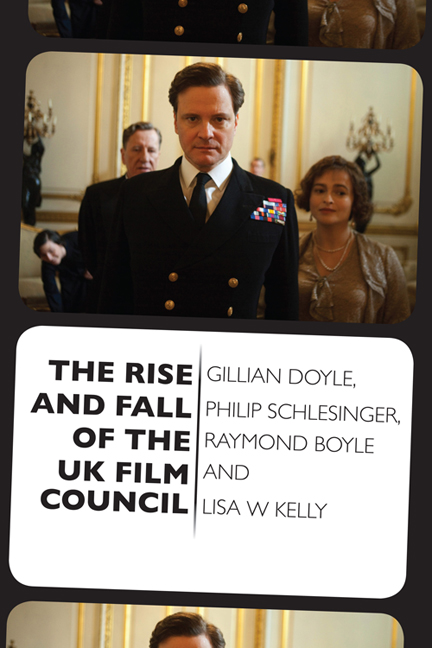10 - Conclusions
from Part IV - Strategic Lessons
Published online by Cambridge University Press: 05 September 2016
Summary
I've never been certain whether the moral of the Icarus story should only be, as is generally accepted, ‘don't try to fly too high’, or whether it might also be thought of as ‘forget the wax and feathers, and do a better job on the wings’.
(Kubrick 1997)Introduction
In this book we have told the tale of the rise and unexpected fall of the UK Film Council. It is a story rich in characteristically overweening ambitions for the British film industry, of both deft and inept political backdoors dealings, clashing egos and conflicting interests, falling over hubristic tripwires and, in the end, as the decade-long outcome of the banal organisational routines of strategising and decision making, some genuine achievement.
We have found the brief history of the UKFC not only to be fascinating but also revealing about the challenges faced by cultural funding bodies as they negotiate competing policy objectives over time, facing uncertain navigation in the choppy waters of shifting economic and political conditions. Our analysis of the history of the organisation has highlighted the particular circumstances that precipitated the perceived need, in the late 1990s, for a new body to support film in the UK. In our account of the hidden history of its formation, we have examined who drove the organisation's agenda, analysing which objectives were prioritised and why their weighting changed over time. The Council's performance has been assessed in a number of ways to probe how effective in fulfilling its remit this iconic – if, at times, controversial – body proved to be. Like all bodies of this kind, it had to negotiate competing economic and cultural objectives and satisfy the key constituencies of interest that really count in the landscape of film-making and public policy. Quite unlike, for instance, broadcasting, with its established regulatory apparatus and habit of provoking resonant debate, film policy is not widely discussed outside the narrow circles of cognoscenti and really does not engage that wider public that in the case of broadcasting is variously constituted as citizens, consumers or audiences.
- Type
- Chapter
- Information
- The Rise and Fall of the UK Film Council , pp. 175 - 186Publisher: Edinburgh University PressPrint publication year: 2015



